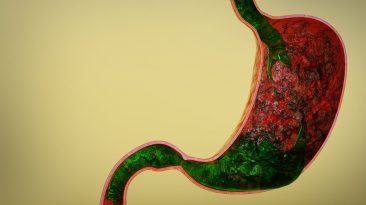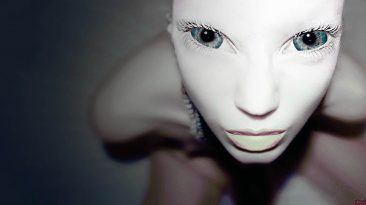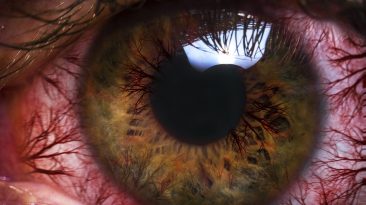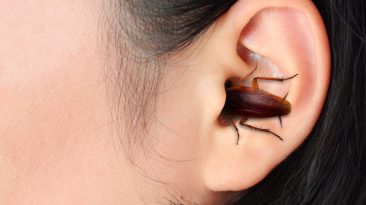The deadline. The pressure. The anxiety. The stress is too much to bear. How will you get through the night? Coffee’s not working, and you’re desperate. What’s this? It’s kind of doing the trick, feeling a bit weird, and it’s like you have wings.
What is Red Bull? Can too much of it hurt you? What happens to your body when you drink it?
In parts of the U.S., grassroots movements are pressuring officials to restrict the sale of energy drinks to minors, due to severe health concerns from binge drinking. Red Bull is one of various brands being targeted.
So, what is Red Bull?
It was first developed in Thailand as a drink to improve stamina and it’s been around since the late 1970s, although it didn’t become popular until an Austrian marketer discovered it in 1984. Three years later, the “Red Bull gives you wings” slogan made its debut. And since then, 82 billion cans have been chugged back, 7.5 billion of those in 2019 alone.
A can of regular Red Bull contains caffeine, sucrose, glucose, citric acid, taurine, vitamin B12, carbonated water, sodium bicarbonate, calcium pantothenate, and artificial and natural colors, including flavors. Sounds perfectly healthy, right?
That might depend on what your definition of healthy is, but can too much Red Bull hurt you? Well, one 250 ml (8.4 oz) Red Bull contains 80 mg (0.003 oz) of caffeine, and a whopping 27 grams (0.95 oz) of sugar. If you drink one of these, the effects might not be too bad, but pounding back one after another will definitely leave you in a jittery mess. And curiously, over 34 deaths have been linked to the intake of energy drinks.
Other than caffeine and sugar, the excessive amounts of B vitamins and high taurine levels will cause you problems. B vitamins are good for you and can ease stress, but too much of them can be dangerous. High levels of B3 and B6 can cause gastrointestinal problems, liver toxicity, blurry vision, and nerve damage. Likewise, taurine is an amino acid that helps in neurological development and regulates water and minerals in the blood, but you shouldn’t overdo that either. In animal studies, increased ingestion of taurine has been shown to decrease body weight and cause dehydration.
So, what would happen if you drank 1,000 Red Bulls in a month?
The math is daunting. Drinking 1,000 Red Bulls in 31 days means gulping 32 cans of the stuff each day. That’s two cans per hour, if you stop for eight hours of sleep. Since there’s no time to lose, let’s get started.
Only ten minutes in, the caffeine from the Red Bull permeates the bloodstream. Your heart rate and blood pressure now start to rise. After 15 to 45 minutes, you may have better concentration or just feel more wired, depending on how fast you downed the entire can. The caffeine is completely absorbed 30 to 50 minutes later. Pupils will dilate, blood pressure rises even higher, and the body releases bursts of insulin.
With caffeine blocking the effects of adenosine, a necessary chemical involved in the sleep process, the body kicks into full-on emergency adrenaline response mode. The liver dumps extra sugar into the bloodstream and it’s converted into fat. After one hour, you may start to feel a major sugar crash, and the effects of the caffeine start to die down. Congratulations, you just survived the first hour and there’s only 30 more cans to go today. Not to worry, you probably won’t survive the entire 31 days anyway, because you’ll likely experience a caffeine overdose in the first two weeks.
Consider this, you’ll be consuming 160 mg (0.0056 oz) of caffeine every hour you are awake. That’s 2,560 mg (0.09 oz) in 16 hours. The negative effects of caffeine would have already kicked in around the 300 mg (0.01 oz) to 500 mg (0.017 oz) mark. To overdose on caffeine, you would need to reach a 10 gram (0.35 oz) level of intake. Since one 250 ml (8.4 oz) can contains 80 mg (0.003 oz) of caffeine, it would take only 125 cans of Red Bull to totally over do it.
You can also forget about the eight hours of sleep we estimated. With all the sugar and caffeine in your system, it’s no surprise that insomnia is often a reported side effect. Then, there’s the physical aftermath of trying such a challenge. High blood pressure, increase for risk of type 2 diabetes, heart disease, and kidney problems. Not to mention, your teeth would look disgusting from the enamel being stripped off.
No one should ever try to drink this many Red Bulls. Our bodies aren’t made to function well in this constant, hyped-up state of fight or flight. Even drinking one can of Red Bull probably isn’t doing your body any favors. But we wouldn’t expect you to give up caffeine entirely. Can you imagine what our world would look like if everyone stopped drinking coffee?
Sources
- “Is Red Bull Bad For You? Health Risks Or Dangers – Maine News Online”. 2020. Maine News Online.
- “Behind The Label: Red Bull”. Path Thomas, 2020. The Ecologist.
- “How Do Energy Drinks Work?”. Howstuffworks.
- “Red Bull Energy Drink :: Energy Drink :: Red Bull CA (EN)”. 2020. redbull.com.
- “Caffeinated energy drink use by U.S. adolescents aged 13-17: A national profile”. Kathleen E Miller, Kurt H Dermen, Joseph F Lucke.
- “How Many Energy Drinks Would It Take To Overdose?”. 2020. Thrillist.
- “Can energy drinks really boost a person’s energy?”. 2020. Mayo Clinic.
- “What Are The Side Effects Of Drinking Red Bull?”. 2020. Healthline.
- “Before You Drink That Red Bull, Learn Just How Terrible It Is For You”. 2016. Your EDM.




























I drink 4 tall ones within a hour of waking up I drink roughly 8-10 cans a day and have been for for almost 10 years an not those sugar free ones this guys is pussy